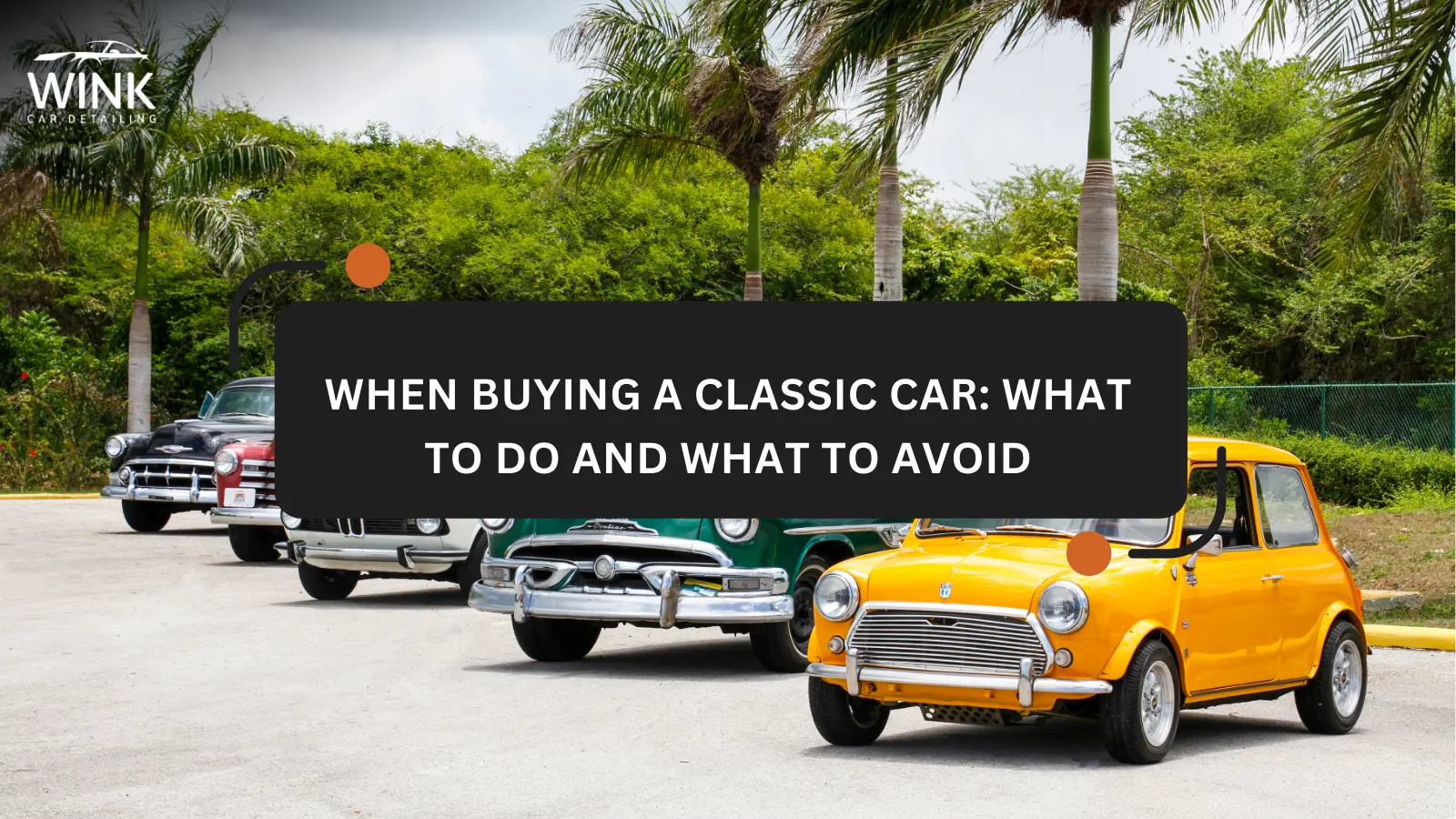When Buying a Classic Car: What to Do and What to Avoid
Owning a classic car is frequently considered the ideal complement to a car enthusiast's collection. There is no denying the appeal of classic cars, and owning one becomes a dream for many drivers. Given that the market for historic cars is estimated to be worth over $1 billion, it is evident that these classic cars are very desirable and valuable.
It takes more than just picking the first old car that strikes your attention to become an investor. To make sure you're making a wise investment, the procedure calls for cautious thought and understanding. Making the incorrect option might result in unexpected expenses and hassles, while making the correct choice can offer years of happiness and even value appreciation.
It is essential to comprehend both frequent dangers and excellent practices in order to assist you successfully navigate the intricate world of purchasing classic cars. You may approach your purchase with confidence, knowing that you're making an informed choice, if you adhere to these dos and don'ts. This blog will lead you through the necessary procedures and choices, putting you on the road to acquiring an exquisite and priceless piece of car classic.
Essential Do’s of Buying a Classic Car
Do Thorough Research Beforehand
Although there are numerous benefits to owning a classic car, it's crucial to do your research and know all the information before making a purchase. For example, classic car insurance is not the same as current car insurance. Even while coverage may cost more, particularly for adequate protection, owners who don't drive their classic cars often may qualify for lower rates. Making an educated choice requires knowing the specifics of insurance, the availability of components, and the history of the vehicle.
Do Inspect Carefully for Rust
While checking for rust may seem obvious, it's an important part of assessing an older car. Even well-kept classics can rust over time, sometimes in unexpected places. A complete examination is required, involving a stroll around the outside of the vehicle, a bottom check and an undercarriage inspection. Rust stains can be difficult to get rid of and could be a sign of more serious structural problems. Buying a car with serious rust damage might not be a good idea unless you are an expert at handling rust.
Do Test Drive before Making a Decision
When thinking about purchasing a classic car, a test drive is essential. Although the car's design is vital, making sure it operates well is even more crucial. You may feel how the car handles and find any urgent problems that might not be visible from a glance by taking it for a test drive. Even if the seller may claim that the car is in perfect condition, you never know what kind of hidden problems you could find when you drive it.
Important Don’ts of Buying a Classic Car
Don’t Rush the Process
It is important to take your time and make sure you have all the information you need before making a purchase, even if you think you have found the ideal classic car. This entails investigating the car's background in great depth, posing pertinent questions to the seller, and getting a second view from an expert who knows classic cars. You can find out if the car is in good shape or if there are any possible issues that might end up costing you more money in the long run by having an expert inspect it.
Don’t Overlook Checking the Numbers
It is crucial to verify that the engine, gearbox and axle Vehicle Identification Numbers (VINs) on the classic car are all original. These numbers need to line up with the vehicle's VIN, proving that the components are original. Should the numbers not match, this indicates that the car may not be 100% authentic and that components have been switched. But if this is acceptable to you and the pricing reflects these adjustments, you could still find it to be a good buy. Just confirm that the vendor isn't asking more for a car that has non-original parts.
Don’t Underestimate the Costs Involved
Investing in a classic vehicle involves more than just the original cost. Older vehicles need more frequent and expensive maintenance. For instance, if the car's parts are no longer manufactured, locating replacements may be difficult. This might entail purchasing components, sometimes at a premium price, from specialty stores or other collectors. It is important to include these extra costs in the total cost of owning and maintaining a classic vehicle.
Taking Care of Your Classical Beauty
After you've made the purchase, regular upkeep and care will help your classic car's exterior and interior last longer. Because older paint and materials might be more susceptible to harsh chemicals, proper cleaning and detailing are required. To protect the paint, some owners choose to wash their cars in portions and with certain techniques.
Considering how much work and time it takes to maintain a classic car, getting expert care could be your best decision. Professional detailing guarantees that there is no chance of harm occurring when cleaning and maintaining your antique car. A mobile, environmentally conscious auto detailing business, Wink Car Detailing specializes in giving classic cars a new lease on life by giving them a glossy, polished surface. With the use of modern steam cleaning equipment, our highly skilled professionals will give your classic beauty the best possible care. Make an appointment with our staff right now to maintain the best possible condition for your antique car.





